
We’re heading off for the long weekend here in the UK, so here’s a long list of what we'll be watching, reading and listening to keep us occupied.
from It's Nice That https://ift.tt/34oog5D

We’re heading off for the long weekend here in the UK, so here’s a long list of what we'll be watching, reading and listening to keep us occupied.

Design brands in Italy are hoping to reopen factories and restart production lines next week, when coronavirus restrictions are due to be eased.
Emergency restrictions are set to lift on 13 April 2020, although Italian health minister Roberto Speranza could still announce an extension.
"We hope to open soon," said a spokesperson for family-run furniture brand Molteni&C, which is based in Lombardy in northern Italy.
"Of course [we will be] in compliance with measures on healthcare to safeguard the safety of our workers and following the experts' instructions in terms of space sanitisation, protections and alternate work shifts."
"Now we wait for the good news"
Italy was the first European country to experience a significant outbreak of coronavirus, becoming the global epicentre in February. The country's vital design sector was brought to a standstill, and Milan's Salone del Mobile was postponed and later cancelled.
Northern Italy, where most of the country's factories are based, has been the worst affected by the Covid-19 pandemic.
A spokesperson for Zanotta, a furniture brand based in Lombardy, told Dezeen they were now "anxiously" awaiting the all-clear from the Italian government.
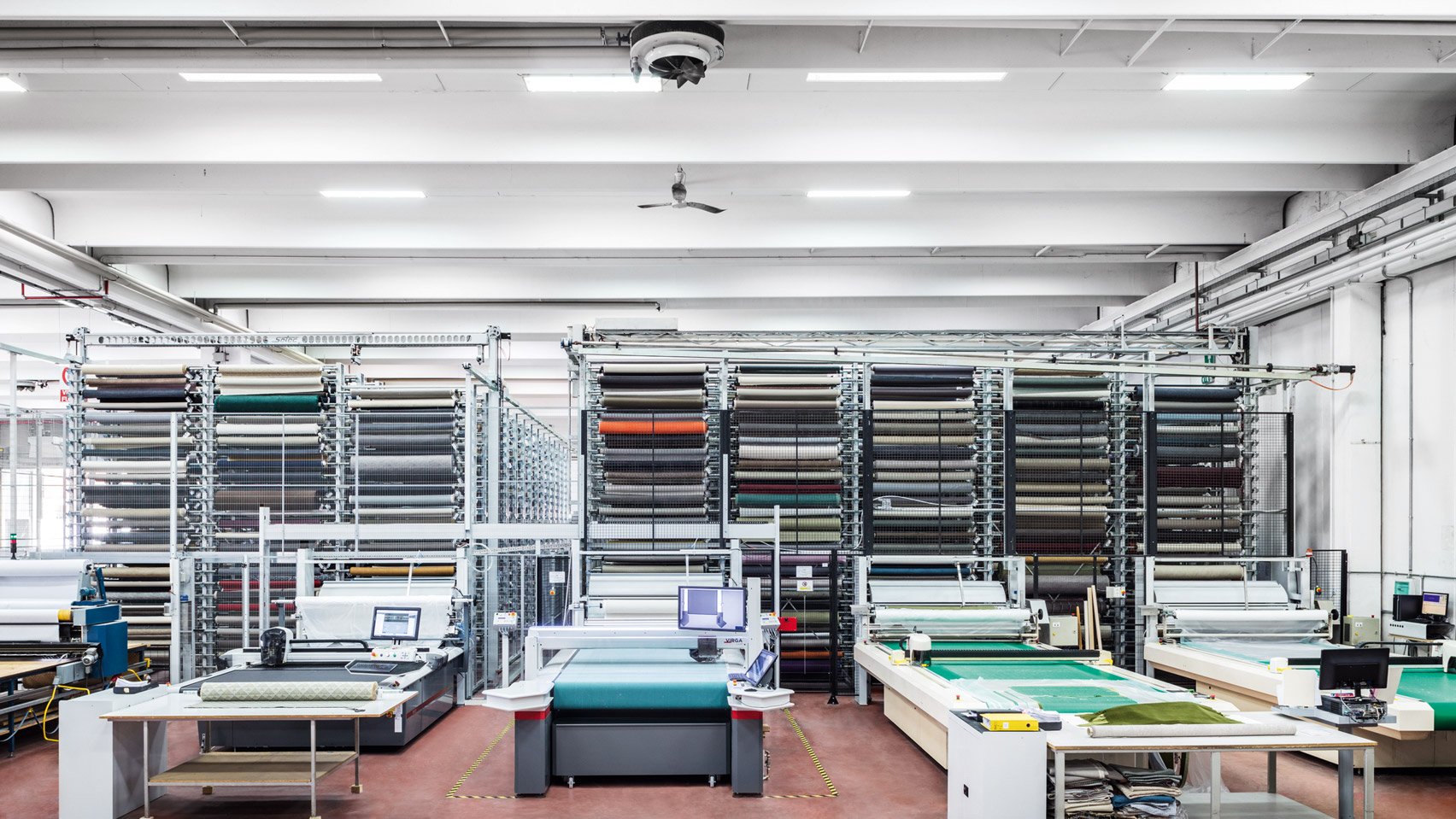
"We are more than a little hopeful that we will soon, albeit gradually, be able to start up again," said Gianni Fortuna, general manager at Arclinea, which makes high-end kitchens in the Veneto region of northern Italy.
"[The crisis] caught us unawares and has left us speechless in the face of events that are greater and more complex than even the saddest of our imaginings," Fortuna added.
"Now we wait for the good news to arrive."
Hope that all-clear will come by Sunday
Northern Italy, where many factories are based, went into lockdown on 8 March. The rest of the country followed two days later.
All but essential factories were closed by Italian prime minister Giuseppe Conte on 21 March. Restrictions were originally due to end on 3 April, but were extended by the government.
"We are waiting to hear from the Italian government as to whether we can open the production plants next week after Easter holidays," said a spokesperson for Poltrona Frau, furniture makers based in Le Marche
"I am confident they will release a statement in a few days."
Furniture brand Pedrali, headquartered in Bergamo with a factory in Udine, told Dezeen it were hoping to hear at the end of this week if it could reopen on 13 April.
Moroso, which also makes furniture in Udine, said it thought they would hear on Sunday. Mutina, who make ceramics, reopened its warehouse and logistics departments in the Emilia Romagna region of northern Italy on 6 April in preparation for the end of the lockdown.
Over 17,600 people have died of Covid-19 in Italy, currently the highest death toll of any country. America, with more than 435,000 cases and almost 15,000 deaths, is now the global epicentre.
Last week Italian companies told Dezeen that while coronavirus had been challenging, they hope the crisis would bring about more innovation and help the country "to re-evaluate what truly matters".
Designers including Formafantasma and Fernando and Humberto Campana have donated objects to an auction to raise money for a hospital in Milan. Auction house Cambi is organising Design Loves Milano to fundraise for Ospedale Luigi Sacco.
The main image of Milan in the spring is by Andrzej Otrębski.
The post Italy's design brands "hopeful" as coronavirus lockdown end nears appeared first on Dezeen.
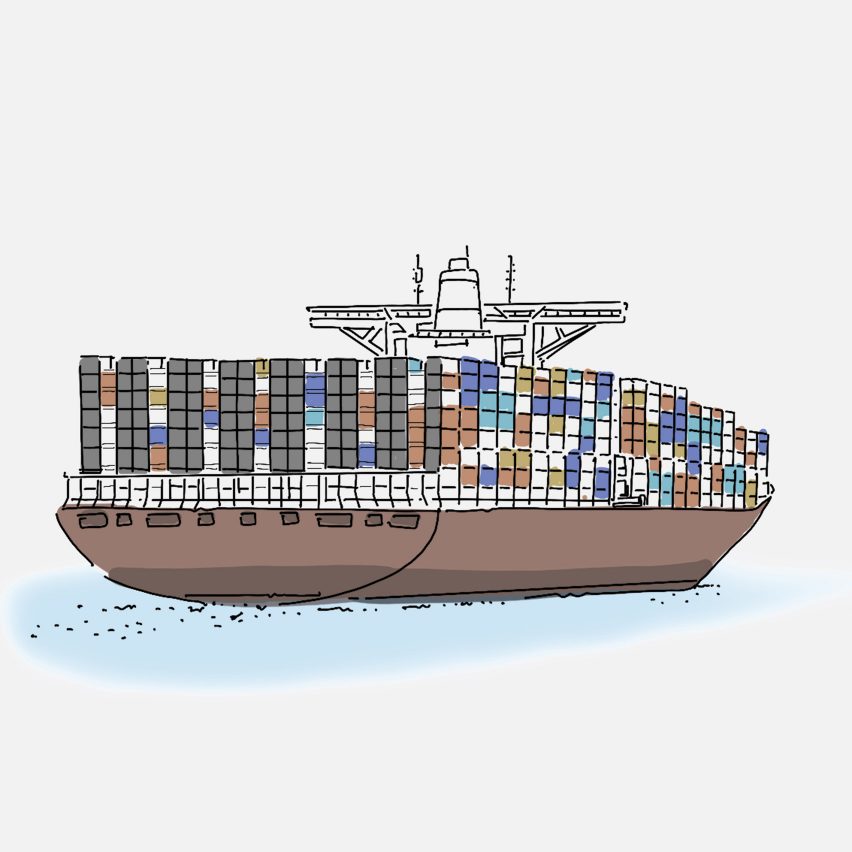
Container ships could be converted into giant hospitals that could sail to cities most impacted by coronavirus, under a proposal by UK architecture studio Weston Williamson + Partners.
The studio came up with the proposal as it believes that coronavirus Covid-19 will have a serious impact on countries that lack access to healthcare.
"It looks likely that Europe and USA will be decimated by Covid-19 but I really fear it will be a catastrophe across Africa, in India and other countries, and in refugee camps where social distancing is a luxury and access to running water and hygiene is more difficult," explained Chris Williamson, co-founder of Weston Williamson + Partners.
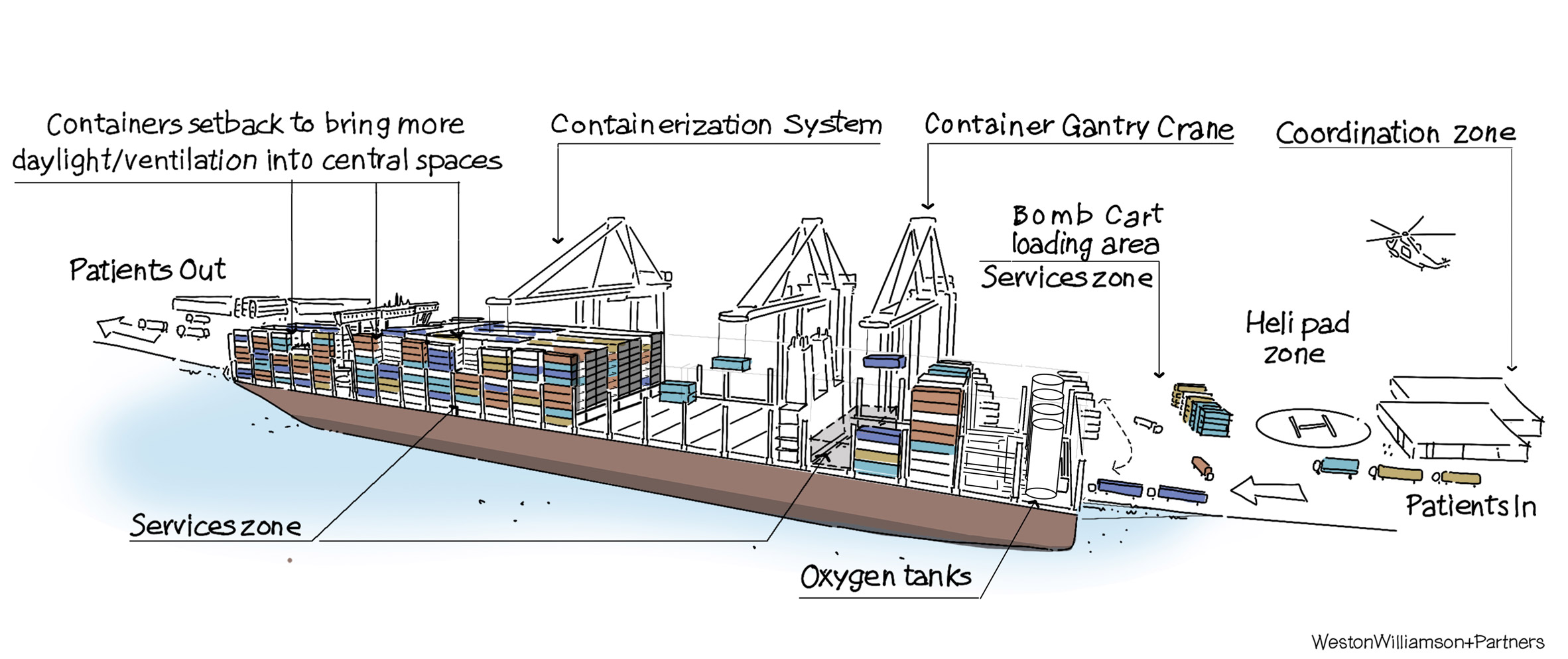
The studio believes that container ships could be a solution as they can sail directly to areas worst hit by the pandemic. Many large container ships are currently out of service due to the slowdown in global trade.
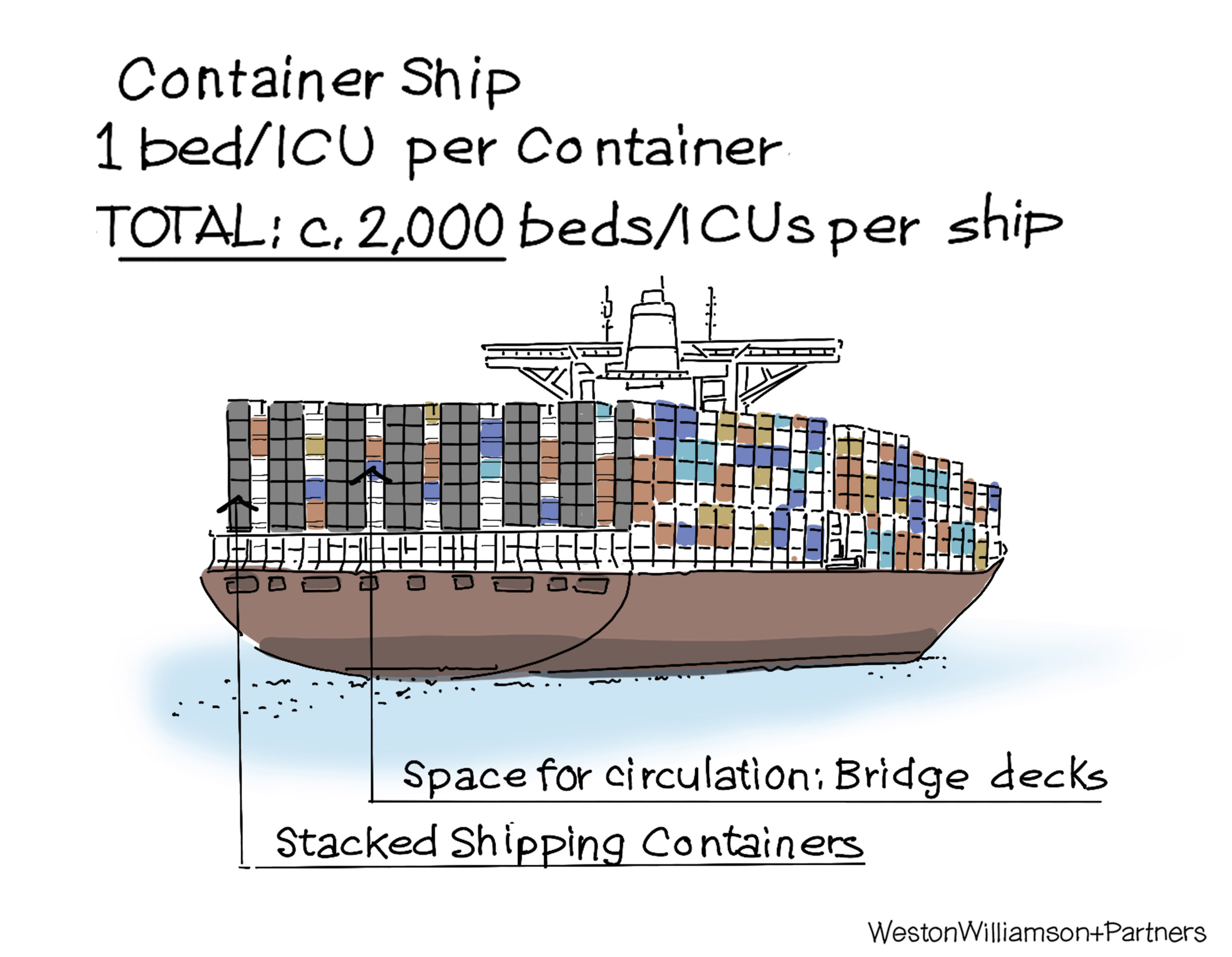
The hospital ships would serve as an alternative to the field hospitals currently being built in conference centres, including the Excel in London, and parks in North American and European cities.
"We are fortunate in the UK and the USA to have parks and open spaces in our cities planned for well being and health reasons by enlightened visionaries," Williamson told Dezeen.
"I'm sure Frederik Olmstead did not envisage his exemplary 1857 design for New York's Central Park would be a huge field hospital, but he did provide it for rest and recreation, health and well-being for a rapidly growing population," he continued.
"Developing countries do not have an Excel exhibition centre to convert to a hospital. But the world at present has hundreds of container ships with thousands of containers, which can be quickly repurposed. We all need to help to avoid a catastrophe."
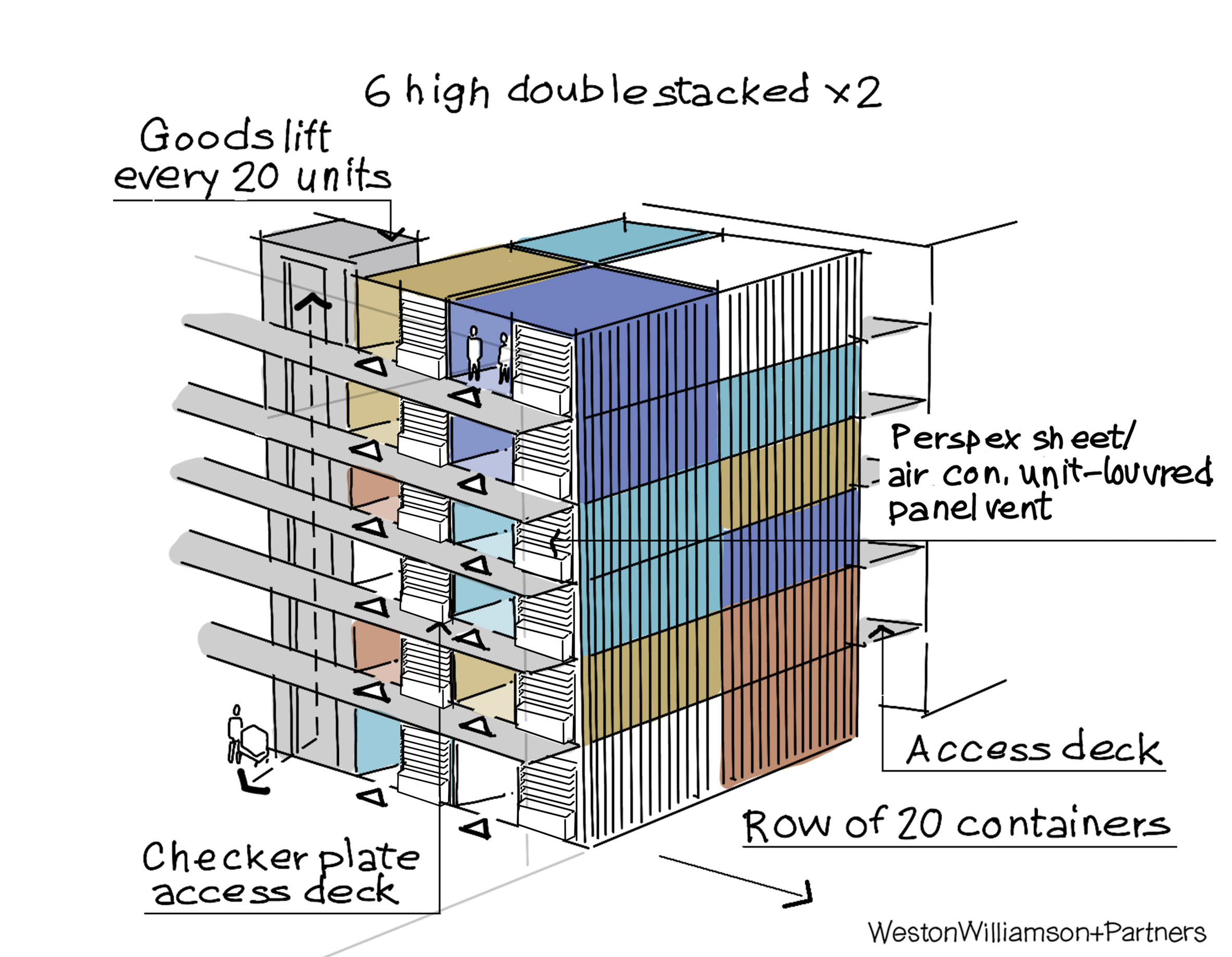
The hospital wards, which were designed with advice from engineering consultancy Mott MacDonald, would be made of shipping containers stacked six high. Access would be via circulation decks served by goods lifts spaced at 20-unit intervals.
"The height of six is a manageable number in case patients need to be moved around, and any higher, which is possible, would lead to too dense canyon-like blocks," said Williamson. "It's important that there is a sense of well being with good light and airflow."
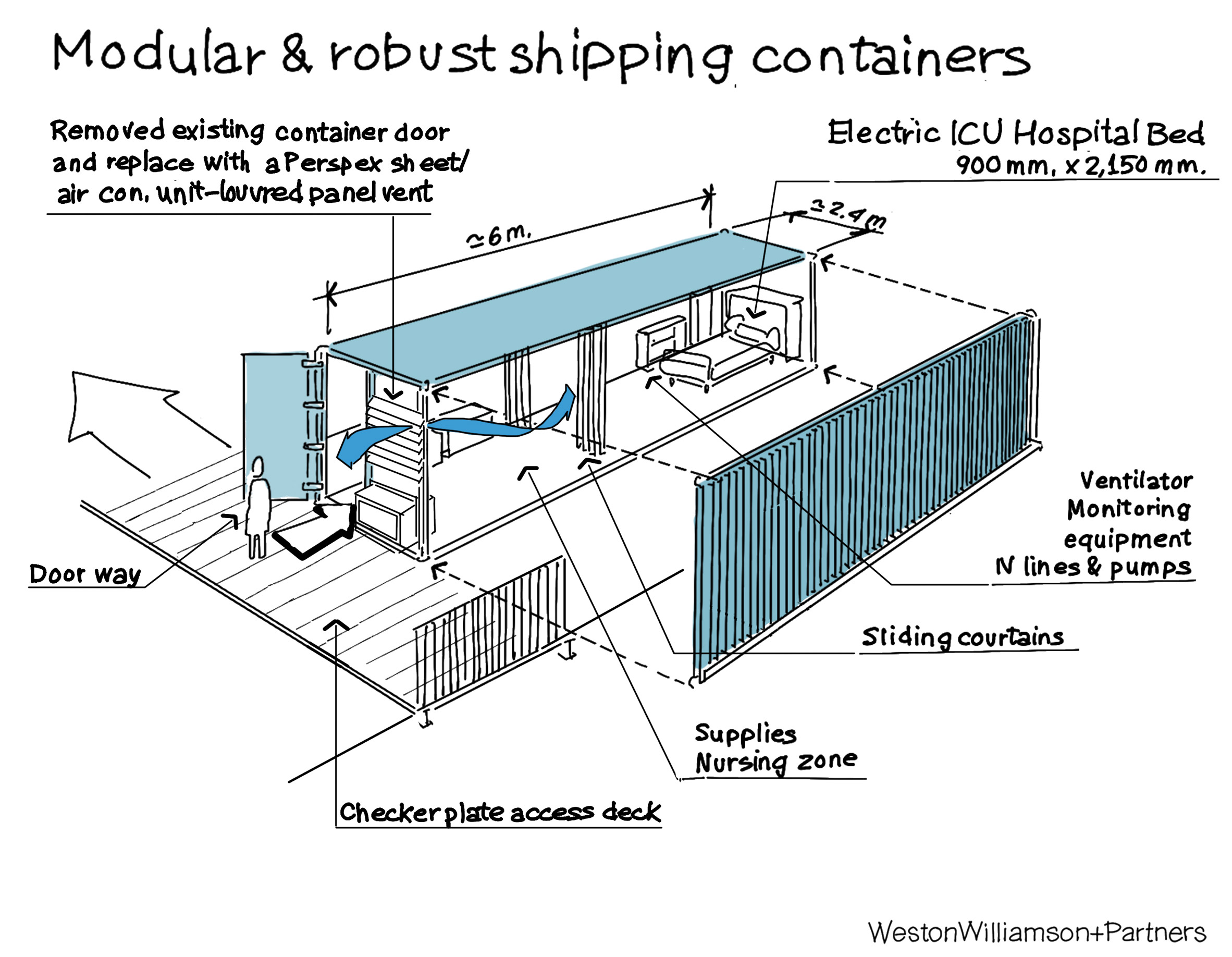
Each of the container-based intensive care units would be powered by the ship's power supply combined with back-up generators placed within each block of 20 units.
"The great thing about containers is that they are almost the perfect size for a single intensive care bed and it gives privacy, comfort, daylight and ventilation," continued Williamson.
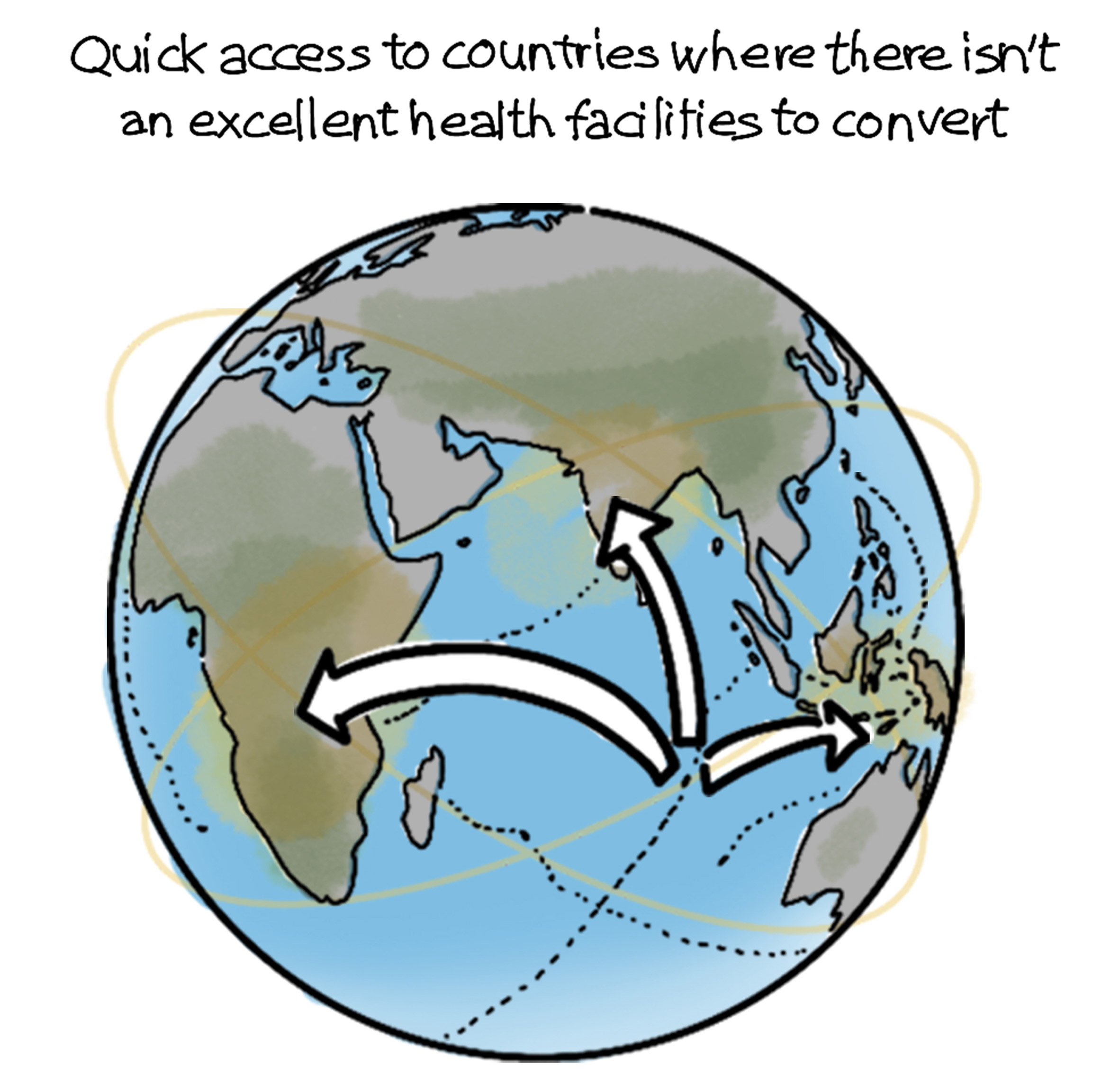
Weston Williamson has contacted shipping companies, the RIBA and humanitarian organisations to get the project up and running.
The hospital ships could be operational soon with "political will and the agreement of the shipping companies," said Williamson.
"Maesk, CMA CGM and Hapag Lloyd are the three firms that we are speaking to who have shown interest," he added.
Weston Williamson is an architecture studio with offices in London, Toronto, Melbourne and Sydney. The studio has previous built a modular student housing block in Lewisham, London, and proposed a housing block that can be expanded by its residents in Palestine.
Its hospital ship proposal follows a concept designed by Italian architects Carlo Ratti and Italo Rota for an intensive-care pod within a shipping container. The first of these units is under construction at a hospital in Milan.
The post Weston Williamson + Partners proposes turning container ships into floating coronavirus hospitals appeared first on Dezeen.

All images © Rafael Gonzales Jr.
In Pandemic Lotería, drawing “La Cabrona” actually might be key to winning the game. San Antonio-based artist Rafael Gonzales Jr. has been sharing his COVID-19-themed cards on Instagram that are based on the Mexican card game Lotería, which functions similarly to bingo. The deck features the realities of quarantined life, from a stockpile of toilet paper to continual Zoom calls to a lone bottle of hand sanitizer. Each now ubiquitous image is paired with a humorous name like “La Quaran15” for a barrel of butter and “La Starbucks” underneath a home coffee maker. The artist’s light-hearted work is available as prints and t-shirts through his online shop. (via This Isn’t Happiness)








Do stories and artists like this matter to you? Become a Colossal Member and support independent arts publishing. Join a community of like-minded readers who are passionate about contemporary art, apply for our annual grant, and get exclusive access to interviews, partner discounts, and event tickets.

A few weeks back Studio OOO decided to dedicate their Thursdays to working for free, offering their design services to anyone who needed them. This decision raises the question of what our industry's responsibility is in a time of crisis, and how further studios could help.